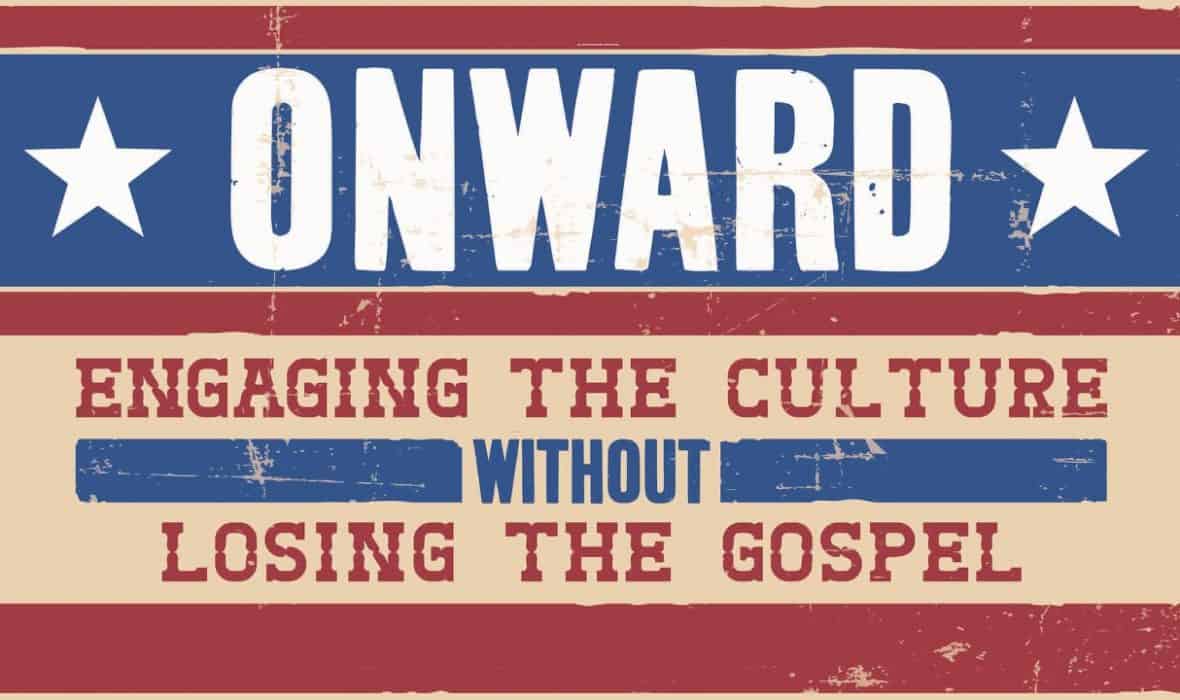Sometimes, the best defense of the gospel isn’t a better argument but a better story. That’s why the previous episode about Josh Chatraw’s book Telling a Better Story and this episode with Russell Moore both focus on narrative apologetics. Also: after an episode in which your intrepid cohosts dredged the depths of some of the worst music ever produced in the history of humanity, this episode marks a return to aural greatness as Timothy looks at music from Paul McCartney, Petra, and Johnny Cash. The focus of the musical discussion this week is “He Went to Paris,” a 1973 tune from everyone’s favorite margarita-marinated beach strummer, the one and only Jimmy Buffett.
The first few moments of the podcast threaten to devolve into total disaster, as Timothy is shocked to learn that the Pixar film Onward was not actually an adaptation of Russell Moore’s book Onward: Engaging the Culture without Losing the Gospel. (Önwärd would, however, have been a great name for a Christian metal band in the 1980s.) After learning in the previous episode that Josh Chatraw’s “inside out apologetics” has nothing to do with the Pixar film Inside Out, this new revelation from Russell Moore is almost too much for Timothy to handle. But Timothy is far more resilient than you might think, and he recovers from his shock just in time to discuss the narrative apologetics of C.S. Lewis’ The Chronicles of Narnia that God utilized to guide a teenaged Russell Moore toward books like Mere Christianity. Along the way, Russ and Timothy end up reminiscing about how the Christian rock band Petra shaped their souls in the 1980s. The discussion then goes full circle with Jimmy Buffett’s “He Went to Paris,” back to the infinite yearning of every human heart for a satisfying story and to the apologetic truth that only the gospel can provide the narrative that humanity needs.
The new cover art for this season was created by Dani Wallace (daniwallace.myportfolio.com).
This Week’s Guest
Russell Moore is president of the Ethics & Religious Liberty Commission of the Southern Baptist Convention, the moral and public policy agency of the nation’s largest Protestant denomination. Dr. Moore is the author of several books, including Onward: Engaging the Culture without Losing the Gospel and The Storm-Tossed Family: How the Cross Reshapes the Home. You can find out more about Dr. Moore at his personal website, https://www.russellmoore.com

Links to Click
A Theology for the Church: book edited by Daniel Akin
Onward: book by Russell Moore
The Chronicles of Narnia: series by C. S. Lewis
Mere Christianity: book by C. S. Lewis
He Went to Paris: song by Jimmy Buffett
Reading Buechner: book by Jeffrey Munroe
Surprised by Joy: book by C. S. Lewis
Why Should I Trust the Bible?: book by Timothy Paul Jones
How to Make Three Chords and the Truth More Amazing than It Already Is
Support the show and spread the word! Here are a few ways to do that:
1. Subscribe to Three Chords and the Truth: The Apologetics Podcast: Apple / Android / RSS.
2. Leave a rating and review on iTunes to encourage other people to listen to the show.
3. If you purchase any of the books mentioned in Three Chords and the Truth, consider using the Amazon links provided in the show notes. The show will receive a small percentage of each sale.
4. Visit our Patreon site where you can support the podcast, suggest future songs or topics, and order Three Chords and the Truth merchandise.
5. Make contact with us on Twitter: @DrTimothyPJones@GarrickBailey@ApologeticsPod
The Closing Credits
Three Chords and the Truth: The Apologetics Podcast thanks B and H Academic for their sponsorship. Music for the podcast has been licensed through Artlist.io and performed by Trent Thompson. Brief excerpts of music played in each program are included solely for the purposes of comment and critique as allowed under the fair-use provision of U.S. copyright law. “The fair use of a copyrighted work … for purposes such as criticism, comment, news reporting, teaching, … scholarship, or research, is not an infringement of copyright” (U.S. Code § 107, Limitations on exclusive rights: Fair use).

